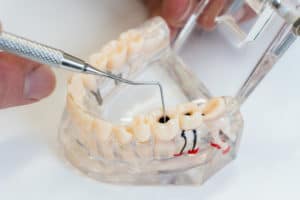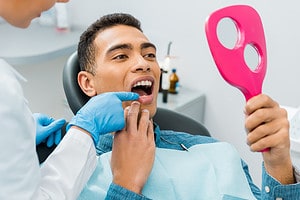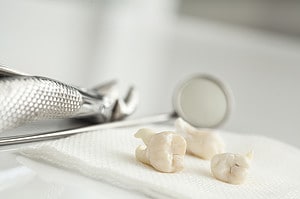Retainers are an important part of the Invisalign process, helping to maintain the results of teeth straightening. But how long do Invisalign retainers last?
It’s important to understand the factors that influence the life of a retainer, as well as tips for extending its use. In this article, we’ll compare retainer lifespans, explain the typical retainer lifespan, and discuss ways to extend retainer use.
Comparing Retainer Lifespans
Comparing the lifespans of retainer types is an important factor to consider when determining how long your Invisalign retainers will last. Orthodontic treatment is usually followed by a period of retainer wear after treatment, and Invisalign offers an effective alternative to traditional metal braces.
It is recommended to wear the retainer at night for a certain period, usually several months after the aligner treatment has been completed. There are two types of retainers, permanent and removable, and the difference in duration of wear depends on the individual’s orthodontic needs.
Permanent retainers are usually worn for the rest of the patient’s life, while removable retainers are typically worn for a few years after the treatment. Ultimately, the length of wear depends on the recommendation of the orthodontist.
Typical Retainer Lifespan
The typical lifespan of an Invisalign retainer depends on the recommendation of the orthodontist. Generally, retainers should be worn for as long as the orthodontist recommends, which is usually between 6 and 12 months. After that, people should wear their retainers at night to maintain the desired result.
Invisalign retainers are made from thermoplastic material, which is very similar to the aligner material. The lifespan of these retainers can be affected by human wear, bite issues, or complex bite conditions.
- Wear retainers for as long as recommended by an orthodontist.
- Wear retainers at night to maintain the desired result.
Invisalign retainers are made from thermoplastic material
- Human wear, bite issues, and complex bite conditions can affect retainer lifespan
Retainer lifespan will vary depending on individual needs.
Factors Influencing Retainer Life
With regular wear and maintenance, the lifespan of an Invisalign retainer can vary depending on several factors. Treatment time is one of the most important factors as it determines the amount of time the retainer will be needed to hold the newly repositioned teeth in place. Generally, the longer the treatment time, the longer the post-treatment retainer will last.
However, if the retainer is only needed for an extended period of time, such as during the first few weeks of a new treatment, it may need to be replaced more frequently. Additionally, the hours of everyday wear can also be a determining factor in retainer life. If a retainer is worn for too many hours every day, it may not last as long.
Lastly, the patient’s bone density, as well as the risk of relapse, can also be taken into consideration when considering the applicable risks of retainer life. With all of these factors, it is important to communicate with a dental professional to determine the best option for each individual case.
Tips for Extending Retainer Use
Taking steps to maintain your retainer can help to extend its use. For Invisalign retainers, a consistent retainer wear schedule and proper dental hygiene routine is essential for adults and children alike. To ensure the retainer’s longevity, extra care should be taken when handling it, such as keeping it away from hot water or other heat sources. Additionally, maintain a regular dental care routine and schedule, and ask any additional questions you may have at your dentist’s office.
Here are a few tips for taking care of your retainer:
- Clean the retainer after meals and snacks.
- Avoid hot water and other heat sources.
- Ask your dentist about any frequent questions you may have.
- Maintain a regular dental care routine.
- Consider the difference between aligners and retainers when wearing them.
Following these tips will help you ensure that your retainer lasts you as long as possible. With proper care and maintenance, you’ll be able to make the most of your Invisalign retainers and maintain good dental health.
Cleaning and Maintenance
Adopting a consistent cleaning and maintenance routine is key to ensuring the longevity of Invisalign retainers. To keep them in good condition, it is important to clean them regularly and avoid exposing them to acidic foods and beverages. Additionally, it is important to remove food particles and food residue from the retainers after eating or drinking.
It is also recommended to store Invisalign retainers in a chilled material to maintain their shape and flexibility. Furthermore, there are some dental health benefits to using Invisalign retainers, such as the ability to better clean and floss between teeth. However, it is important to note that these are general health claims and should not be used without consulting a health professional.
With the right amount of care and attention, Invisalign retainers can last for a long time.
Replacing Retainers
Although Invisalign retainers can last for a long time with proper cleaning and maintenance, it is important to understand when to replace them.
Invisalign Retainers should be replaced every six to nine months, while Essix Retainers may need to be replaced every two to three months. Fixed Retainers can last for years but may need to be replaced if they become loose or start to cause discomfort in daily life.
Replacing Retainers should be done with gentle pressure and can be done quickly, typically at the same appointment length as when they were first applied. Appointments for replacing retainers can be easily booked online or through a dental office.
At an entire removal appointment, Invisalign retainers can be replaced with new and updated retainers.
Key Takeaways
Retainers are an important part of the orthodontic process. The lifespan of a retainer can vary greatly depending on the type of retainer used. Considering factors such as cleaning and maintenance, as well as lifestyle habits, can help to extend the life of a retainer.
It is important to consult with a dental professional to determine when a retainer should be replaced. With proper care, retainers can provide lasting results for a beautiful, healthy smile.
If you are looking for a quality orthodontic care service in Aspendale Gardens, VIC, look no further than Aspendale Gardens Dental Care. Our team of experienced dentists in Aspendale will provide you with the best care for your teeth and help you maintain a healthy, beautiful smile for years to come with quality retainers. Contact us today to learn more about our orthodontic services.











